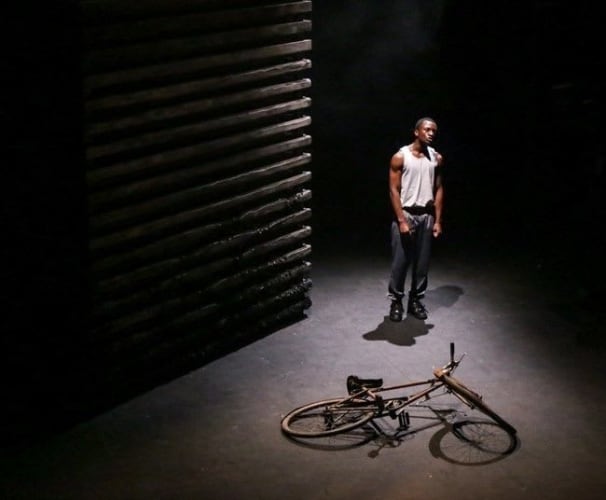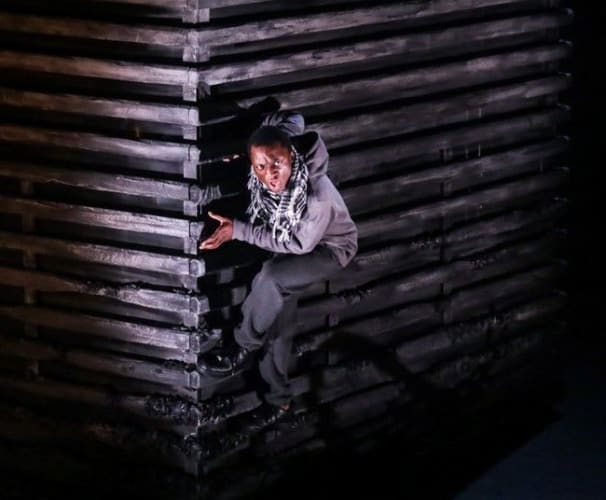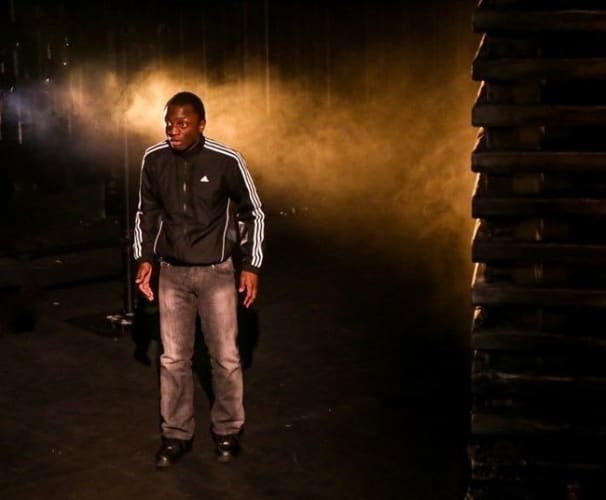From the balcony of the flat where he lives with his mum, a teenage boy looks down on his neighbourhood.
He can see Ghandi’s corner shop and the stray cat that sneaks into it, the guys leaning against a wall smoking pot, Marsha taking her washing over to the Blackwood’s and unsteady old man Boateng in his Ghanaian hat, Trevor senior sitting in his car taking of his Homebase staff badge and thinking. He can see into the homes and sometimes the lives of his neighbours and tell us about it and his own problems and aspirations.
Arinzé Kene’s new play is a long monologue that in nine segments which takes a bullied north London schoolboy in the noughties to the riots of 2011 then his release after 18 months in detention. But this doesn’t feel like a monologue.
It’s an amazing piece of writing with a fine ear for the vernacular and a real authenticity. It is funny and moving and so accurate that when it came to the interval both I and the stranger sitting next to me turned to each other to say it took us back to when we were that age and they had got it precisely.
Anton Cross delivers a remarkable performance. Right from the start he establishes a rapport with the audience and then maintains interest and energy through the whole show—and this is a full-length play not a brief one-acter. Though much of the text is reportage, it is almost all in the present tense and is delivered with an immediacy that seems entirely fresh-minted.
Natalie Ibu’s direction is both naturalistic in detail and abstracted. The boy may ride around on the bicycle he has waited so long for but the dark, strutted cube that dominates Amelia Jane Hankin’s design can be read as many things from his block of flats to the problems that face him.
We see the people he describes or the incidents he reports only on in our imagination but sometimes we hear them in snatches of conversation or a dog barking behind us, all part of Helen Skiera’s sound design (and perfectly cued by stage management). There is a complex lighting plot too by Zoe Spurr and these things all help support Cross’s performance but that doesn’t diminish his achievement.
This isn’t a play about the 2011 riots; in some ways it goes deeper than that. It shows us a boy and a youth brought up to do the right things. He’s told by pastor and teacher and parent to rise above responding to violence with violence; that if you set out to be and do good, life’s problems will somehow solve themselves (and sorting out sex certainly does for this boy) but it isn’t really that simple. There is a need to burst out sometimes to release the frustrations that can build up, to do something that isn’t what you “should” do but that suddenly seems the right thing for you in that moment, however illogical.
Kene parallels his boy’s story with that of a little dog in the next yard to a bigger dog, hence the title, and he gives his tale a specific setting but this is a personal story that speaks for so many through one voice. Though much of it charts the bad things that happen—the injustices, frustrations, infidelities and personal tragedies—it is also a celebration of resilience and determination that leaves you with hope rather than anger.
For two and a half hours, play and performance are both completely compelling.


